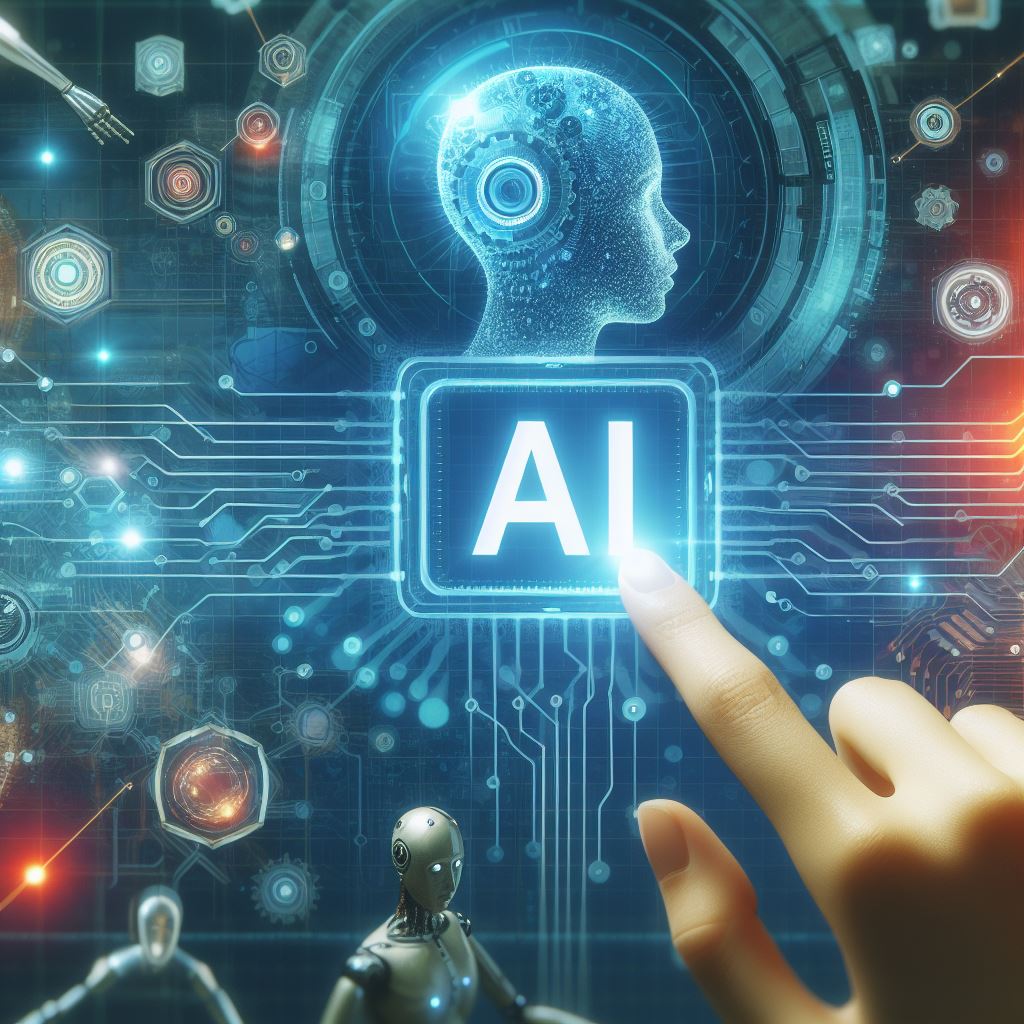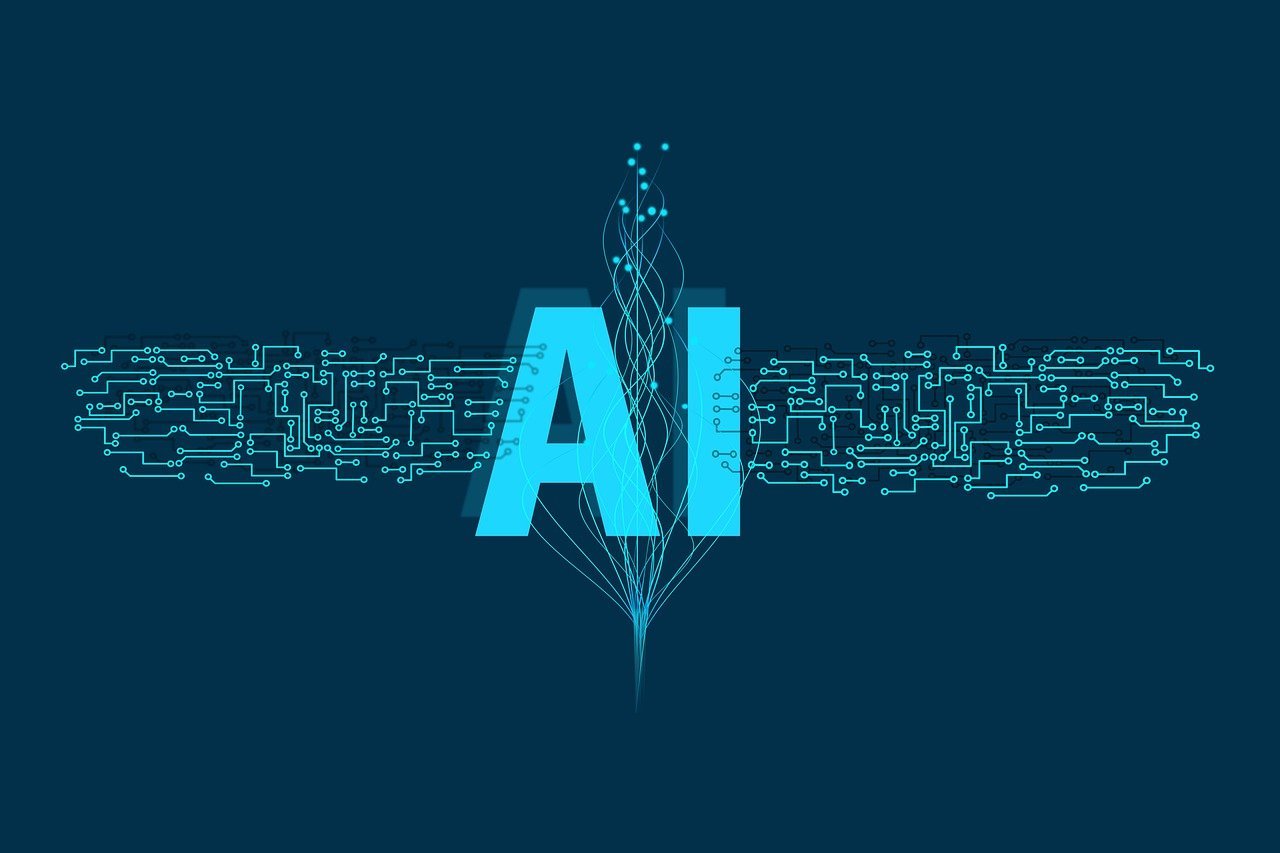Introduction
As we sail through the year 2024, the ocean of Artificial Intelligence (AI) technology is vast and ever-expanding. AI has become an integral part of our daily lives, revolutionizing industries, enhancing our experiences, and promising a future that was once only imaginable in science fiction. In this blog post, we’ll explore the current state of AI technology, its applications, and the ethical considerations that come with it.
The State of AI Technology in 2024
In 2024, AI technology has transcended previous boundaries, becoming an intrinsic part of the societal fabric. Customized chatbots have democratized AI, offering tailored experiences without the need for coding skills. Multimodal capabilities in state-of-the-art models like GPT-4 and Gemini process text, images, and videos, fostering a new wave of applications. AI’s integration into products and services has surged, enhancing user experiences and decision-making across various domains. The convergence of AI with IoT and cryptocurrency is reshaping industries, while advancements in generative AI are producing more realistic and higher-quality outputs. As AI becomes increasingly ubiquitous, the focus on responsible AI practices has intensified, ensuring ethical considerations keep pace with technological progress. The state of AI in 2024 is not just about technological prowess but also about its harmonious integration into the daily rhythm of human life.
Breakthroughs and Innovations in AI Technology
In the realm of AI, 2024 has been a year marked by remarkable breakthroughs and innovations that are reshaping the landscape of technology and its applications across various sectors:
- Generative AI has taken center stage, with its transformative impact on medical device design, offering new possibilities in treatment and functionality.
- The conversation around AI’s influence on the public has been enriched by revolutionary AI and Large Language Models (LLMs) that have already altered daily life.
- In healthcare, Gainwell Technologies has been recognized for its innovative Immunization Information System (IIS), which won the “Best Healthcare Data Repository Solution” award, showcasing the potential of AI in managing and utilizing healthcare data.
- MIT Technology Review highlighted the mass adoption of generative AI tools like ChatGPT, which have reset the trajectory of the tech industry.
- IBM’s blog on AI trends pointed out the importance of governance, middleware, training techniques, and data pipelines in making generative AI more trustworthy and accessible.
- Predictions for AI advancements include the customization of enterprise AI, open-source AI models, API-driven AI, and multimodal generative AI, emphasizing the importance of AI safety and ethics.
These advancements are not just technological feats but also gateways to a future where AI is integrated into the fabric of society, enhancing human capabilities and opening up new horizons for innovation and progress.
AI in Everyday Life
AI in 2024 has woven itself into the fabric of everyday life, enhancing and simplifying daily tasks in ways that are both subtle and profound:
- Smart Home Devices: AI-powered smart home devices have become more intuitive, learning from our habits to manage energy consumption, security, and comfort.
- Personal AI Assistants: These assistants have evolved to manage schedules, handle reminders, and even anticipate needs, becoming an indispensable part of daily routines.
- Mobile Phones: AI in mobile phones now offers more personalized experiences, from photography enhancements to predictive text and voice recognition, making interactions with devices smoother and more natural.
- Healthcare: Wearable AI devices monitor health metrics in real-time, providing insights and alerts for a healthier lifestyle.
- Transportation: AI in transportation optimizes routes, reduces traffic congestion, and enhances safety features in vehicles.
- Customer Service: AI chatbots provide instant customer service across various platforms, offering solutions and support around the clock.
- Entertainment: Streaming services use AI to recommend content tailored to individual preferences, creating a more engaging viewing experience.
These examples illustrate how AI in 2024 is not just a technological tool but a daily companion, streamlining our lives and opening up new possibilities for convenience and efficiency.
Applications of AI in Various Industries
In the transformative year of 2024, Artificial Intelligence (AI) has not only continued its trajectory of innovation but has also cemented its role as a cornerstone across various industries. The applications of AI are diverse and far-reaching, impacting sectors from healthcare to finance, and beyond.
AI in Healthcare
AI’s influence in healthcare is profound, with machine learning models providing predictive insights that guide clinical decision-making and patient care. AI-powered diagnostic tools, personalized medicine, and robotic assistance in surgeries are enhancing treatment outcomes and patient experiences. The integration of AI in healthcare management systems is improving efficiencies, reducing costs, and contributing to more effective healthcare delivery.
AI in finance
The financial industry has embraced AI for risk assessment, fraud detection, and algorithmic trading. AI-driven analytics are enabling financial institutions to make more informed decisions, while chatbots and virtual assistants are revolutionizing customer service, offering 24/7 support and personalized financial advice.
AI in Education
AI has transformed the educational landscape by facilitating personalized learning experiences that adapt to the individual needs of students. AI systems are assisting educators in grading and providing feedback, thus allowing them to focus more on teaching and less on administrative tasks. Furthermore, AI is enabling the analysis of educational data to improve learning outcomes and institutional efficiency.
AI in Automotive
The automotive sector has seen significant advancements with the integration of AI in autonomous vehicles, predictive maintenance, and enhanced safety features. AI is not only improving the driving experience but also paving the way for a future of self-driving cars.
AI in Retail
In retail, AI is optimizing supply chain management, personalizing shopping experiences, and revolutionizing inventory management. AI-driven insights are helping retailers understand consumer behavior, predict trends, and make data-driven decisions.
AI in Manufacturing
AI in manufacturing is leading to smarter factories with predictive maintenance, quality control, and automated production lines. These advancements are increasing efficiency, reducing waste, and ensuring higher quality products.
AI in Entertainment
The entertainment industry is leveraging AI for content creation, recommendation algorithms, and audience engagement strategies. AI is enabling creators to produce content that resonates with audiences and provides personalized entertainment experiences.
AI in Telecommunications
In telecommunications, AI is optimizing network operations, enhancing customer service, and enabling predictive maintenance. AI-driven analytics are providing insights that help telecom companies improve service quality and customer satisfaction.
As AI continues to evolve, its applications are becoming more sophisticated and integral to industry success. The year 2024 marks a pivotal point where AI is not just an emerging technology but a fundamental aspect of how industries operate and innovate. The future is bright, and AI is at the forefront, driving change and creating opportunities across the global economic landscape.
Ethical Considerations in AI Technology
As AI continues to advance in 2024, ethical considerations remain at the forefront of technological discourse. The integration of AI into various facets of life has prompted a deeper examination of its impact on society. Here are some key ethical considerations:
- Responsible Implementation: Organizations are adopting a responsible approach to AI,
 with non-technical leaders playing a crucial role in ensuring AI practices align with broader operational standards.
with non-technical leaders playing a crucial role in ensuring AI practices align with broader operational standards. - Equity and Bias: Addressing equity and ethics in AI is critical. Both algorithms and humans contribute to bias, but AI also holds the potential to correct or reverse inequities.
- Regulation and Privacy: Balancing innovation with data privacy is a challenge. The EU’s AI Act and other regulations aim to foster ethics and industry fairness while protecting individual privacy.
- Transparency: As AI systems grow more complex, transparency and explainability become essential. Users need to understand and interpret AI decision-making processes.
- Fairness in AI: Ensuring fairness in AI development is vital. The quality of AI depends on the fairness and equity of the training data, as AI can inherit human biases.
These considerations are integral to the development and deployment of AI technologies. They ensure that as AI reshapes our world, it does so in a way that is fair, responsible, and beneficial for all.
Conclusion
As we navigate the waters of AI technology in 2024, we must do so with caution and consideration for the ethical implications. The potential of AI is boundless, and with the right approach, it can lead us to a future where technology and humanity coexist in harmony.


